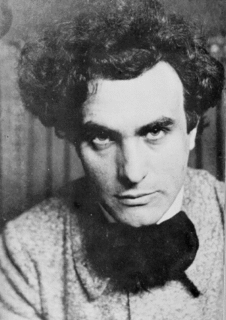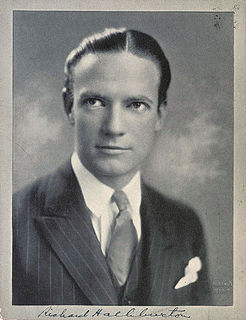Top 433 Commonplace Quotes & Sayings - Page 7
Explore popular Commonplace quotes.
Last updated on April 22, 2025.
Suffering is by no means a privilege, a sign of nobility, a reminder of God. Suffering is a fierce, bestial thing, commonplace, uncalled for, natural as air. It is intangible; no one can grasp it or fight against it; it dwells in time - is the same thing as time; if it comes in fits and starts, that is only so as to leave the sufferer more defenseless during the moments that follow, those long moments when one relives the last bout of torture and waits for the next.
Usually when I drank too much, I could guess why I did so, the objective being to murder a state of consciousness that I didn't have the courage to sustain--a fear of heights, which sometimes during the carnival of the 1960s accompanied my attempts to transform the bourgeois journalist into an avant-garde novelist. The stepped-up ambition was a commonplace among the would-be William Faulkners of my generation; nearly always it resulted in commercial failure and literary embarrassment.
I am one who has always been interested only in the edges of the body and the spirit, the outlying regions of the body and the outlying regions of the spirit. The depths hold no interest for me; I leave them to others, for they are shallow, commonplace. What is there, then, at the outer most edge? Nothing, perhaps, save a few ribbons, dangling down into the void.
Good habits are not made on birthdays, nor Christian character at the new year. The vision may dawn, the dream may waken, the heart may leap with a new inspiration on some mountain-top, but the test, the triumph, is at the foot of the mountain, on the level plain. The workshop of character is every-day life. The uneventful and commonplace hour is where the battle is won or lost.
I can think of numberless males, from Bonnard to Callahan, who have photographed their lovers and spouses, but I am having trouble finding parallel examples among my sister photographers. The act of looking appraisingly at a man, making eye contact on the street, asking to photograph him, studying his body, has always been a brazen venture for a woman, though, for a man, these acts are commonplace, even expected.
When we walk the streets at night in safety, it does not strike us that this might be otherwise. This habit of feeling safe has become second nature, and we do not reflect on just how this is due solely to the working of special institutions. Commonplace thinking often has the impression that force holds the state together, but in fact its only bond is the fundamental sense of order which everybody possesses.
Wine has been to me a firm friend and a wise counsellor. Wine has lit up for me the pages of literature, and revealed in life romance lurking in the commonplace. Wine has made me bold, but not foolish; has induced me to say silly things, but not do them. If such small indiscretions standing in the debit column of wine's account were added up, they would amount to nothing in comparison with the vast accumulation on the credit side.
Science is wonderful at destroying metaphysical answers, but incapable of providing substitute ones. Science takes away foundations without providing a replacement. Whether we want to be there or not, science has put us in the position of having to live without foundations. It was shocking when Nietzsche said this, but today it is commonplace; our historical position-and no end to it is in sight-is that of having to philosophise without 'foundations'.
Life, my dear Watson, is infinitely stranger than fiction; stranger than anything which the mind of man could invent. We could not conceive the things that are merely commonplace to existence. If we could hover over this great city, remove the roofs, and peep in at the things going on, it would make all fiction, with its conventionalities and foreseen conclusions flat, stale and unprofitable.
Be patient and sympathetic with the type of mind that cuts a poor figure in examinations. It may, in the long examination which life sets us, come out in the end in better shape than the glib and ready reproducer, its passions being deeper, its purposes more worthy, its combining power less commonplace, and its total mental output consequently more important.
The air is an extremely dangerous, jealous and exacting mistress. Once under the spell most lovers are faithful to the end, which is not always old age. Even those masters and princes of aerial fighting, the survivors of fifty mortal duels in the high air who have come scatheless through the War and all its perils, have returned again and again to their love and perished too often in some ordinary commonplace flight undertaken for pure amusement.
We do not receive wisdom, we must discover it for ourselves, after a journey through the wilderness which no one else can make for us, which no one can spare us, for our wisdom is the point of view from which we come at last to regard the world. The lives that you admire, the attitudes that seem noble to you, have not been shaped by a paterfamilias or a schoolmaster, they have sprung from very different beginnings, having been influenced by evil or commonplace that prevailed round them. They represent a struggle and a victory.
Our musical alphabet is poor and illogical. Music, which should pulsate with life, needs new means of expression, and science alone can infuse it with youthful vigor. Why, Italian Futurists, have you slavishly reproduced only what is commonplace and boring in the bustle of our daily lives. I dream of instruments obedient to my thought and which with their contribution of a whole new world of unsuspected sounds, will lend themselves to the exigencies of my inner rhythm.
There is no nobler chore in the craft of writing than holding up the mirror of reality and turning it slightly, so we have a new and different perception of the commonplace, the everyday, the 'normal,' the obvious. People are reflected in the glass. The fantasy situation into which you thrust them is the mirror itself. And what we are shown should illuminate and alter our perception of the world around us. Failing that, you have failed totally.
On glancing over my notes of the seventy odd cases in which I have during the last eight years studied the methods of my friend Sherlock Holmes, I find many tragic, some comic, a large number merely strange, but none commonplace; for, working as he did rather for the love of his art than for the acquirement of wealth, he refused to associate himself with any investigation which did not tend towards the unusual, and even the fantastic.
In a modern world, increasingly filled with pop culture fads and gimmicks, Lisa Morton reveals much of the underbelly history and unknown facts regarding the biggest pop culture event in history-Halloween. Her sheer delight and well-researched enthusiasm in tackling many of the unrecognized aspects of this monstrous topic makes one wonder what we don't know about everything else that should be as commonplace to our psyche as a bag of candy.
I found myself thinking about the distance between the 60s and today through certain moments. Like the Henry Flynt interview with Ubuweb founder Kenny Goldsmith, where he talks about how he was scarred by how proud John Cage was to be ignorant of popular music. Goldsmith says, "Nobody thinks twice nowadays about listening to everything!" Something that had seemed so uniquely, radically syncretistic in Flynt's day seems much more commonplace now.
...it happens that society is saved as often as the circle of its ruling class is narrowed, as often as a more exclusive interest asserts itself over the general. Every demand for the most simple bourgeois financial reform, for the most ordinary liberalism, for the most commonplace republicanism, for the flattest democracy is forthwith punished as an assault upon society and is branded as Socialism.
The acceptance of ambiguity implies more than the commonplace understanding that some good things and some bad things happen to us. It means that we know that good and evil are inextricably intermixed in human affairs; that they contain, and sometimes embrace, their opposites; that success may involve failure of a different kind, and failure may be a kind of triumph.
The Library didn't only contain magical books, the ones which are chained to their shelves and are very dangerous. It also contained perfectly ordinary books, printed on commonplace paper in mundane ink. It would be a mistake to think that they weren't also dangerous, just because reading them didn't make fireworks go off in the sky. Reading them sometimes did the more dangeous trick of making fireworks go off in the privacy of the reader's brain.
It's no longer permissible to have sexist comments, but growing up in this industry, I spent time in many other organizations where it was just commonplace for men to talk about how a woman looks or give a woman a little bit of a harder time in a meeting and then say, 'I'm just joking - it's because I care about you.'
Why do most great pictures look uncontrived? Why do photographers bother with the deception, especially since it so often requires the hardest work of all? The answer is, I think, that the deception is necessary if the goal of art is to be reached: only pictures that look as if they had been easily made can convincingly suggest that beauty is commonplace.
I think the fact that Brock Lesnar is not on the road 52 weeks a year, is not on 'Monday Night Raw' every episode, is not performing 300 matches per year... I think that dictates to the public, 'Brock Lesnar is special.' That an appearance by Brock Lesnar in an of itself is newsworthy. It's not commonplace.
It is a commonplace of American life that immigrants have made our country great and continue to make a very important contribution to the fabric of American life. But...under the pressures we face today, we can't afford to lose control of our borders, or to take on new financial burdens, at a time when we are not adequately providing for the jobs, the health care, and the education of our own people. Therefore, immigration must be a priority for this administration.
Which are the people who have influenced us most? Not the ones who thought they did, but those who had not the remotest notion that they were influencing us. In the Christian life, the implicit is never conscious, if it is conscious it ceases to have this unaffected loveliness which is the characteristic of the touch of Jesus. We always know when Jesus is at work because He produces in the commonplace something that is inspiring.
A love affair is like a short story--it has a beginning, a middle, and an end. The beginning was easy, the middle might drag, invaded by commonplace, but the end, instead of being decisive and well knit with that element of revelatory surprise as a well-written story should be, it usually dissipated in a succession of messy and humiliating anticlimaxes.
It was like that class at school where the teacher talks about Realization, about how you could realize something big in a commonplace thing. The example he gave--and the liar said it really happened--was that once while drinking orange juice, he'd realized he would be dead someday. He wondered if we, his students, had had similar 'realizations.' Is he kidding? I thought. Once I cashed a paycheck and I realized it wasn't enough. Once I had food poisoning, and realized I was trapped inside my body.
I always cheerfully say, "Well, you know, the species is adapting, and whatever it needs to do, it'll do," but I do think it's maybe a little bit alarming. Everybody knows that one thing we really have to do is to be more wherever we are, more present, that's just kind of a commonplace. And the whole mobile phone thing is completely 100% the opposite - to never be where you are because you can always be somewhere else; and yet it's so fun and addictive.
What was once impossible now summons us to dismantle the walls between ourselves and our sisters and brothers, to dissolve the distinctions between flesh and spirit, to transcend the present limits of time and matter, to find, at last, not wealth or power but the ecstasy (so long forgotten) of commonplace, unconditional being. For the atom's soul is nothing but energy. Spirit blazes in the dullest of clay. The life of every woman or man-the heart of it-is pure and holy joy.
It is a commonplace observation that liberals believe in the perfectibility of man while conservatives believe in the endurance of original sin. Superficially, that would suggest that conservatives take a more understanding and indulgent view of individual lapses, while liberals take a more harshly judgmental one. In fact, we know, quite the opposite is the case.
It has become a commonplace that aggressiveness also often has its roots in fear. I am inclined to think that this theory has been pushed too far. [...] The type of aggressiveness that is the outcome of timidity is not, I think, that which inspires great leaders; the great leaders, I should say, have an exceptional self-confidence which is not only on the surface, but penetrates deep into the subconscious.
Though Americans talk a good deal about the virtue of being serious, they generally prefer people who are solemn over people who are serious. In politics, the rare candidate who is serious, like Adlai Stevenson, is easily overwhelmed by one who is solemn, like General Eisenhower. This is probably because it is hard for most people to recognize seriousness, which is rare, especially in politics, but comfortable to endorse solemnity, which is as commonplace as jogging.
People used to think I was so strange because my toiletry bag used to contain so many grooming items and cosmetics and stuff. But I think it's more acceptable these day for guys to take care of themselves. I think it's becoming more commonplace, not just for sportsmen, but for all guys to take care of themselves.
Society is a more level surface than we imagine. Wise men or absolute fools are hard to be met with, as there are few giants or dwarfs. The heaviest charge we can bring against the general texture of society is that it is commonplace. Our fancied superiority to others is in some one thing which we think most of because we excel in it, or have paid most attention to it; whilst we overlook their superiority to us in something else which they set equal and exclusive store by.
My curiosity was in no way cruel. Deviations from the commonplace attracted me strongly, as they still do; and to me the hermaphrodite and the living skeleton were interesting for the same reason as was Creatore, or the resplendent Guardsmen of the bands - because such people did not often come my way, and I hoped that they might impart some great revelation to me, some insight which would help me to a clearer understanding of the world about me.
Problems associated with the menstrual cycle are now commonplace. The majority of teenagers whom I have seen suffer problems such as PMS, severe cramping, and irregular or heavy cycles. Severe hypothyroidism may cause the menses to stop. Dr. Barnes noted his patients with menstrual problems usually suffered many other telltale symptoms of hypothyroidism. Mine do as well. A large majority of menstrual problems resolve after treatment with dessicated thyroid.
They trespassed upon my thoughts. They were intruders whose knowledge of life was to me an irritating pretense, because I felt so sure they could not possibly know the things I knew. Their bearing, which was simply the bearing of commonplace individuals going about their business in the assurance of perfect safety, was offensive to me like the outrageous flauntings of folly in the face of a danger it is unable to comprehend. I had no particular desire to enlighten them, but I had some difficulty in restraining myself from laughing in their faces, so full of stupid importance.
Life holds one great but quite commonplace mystery. Though shared by each of us and known to all, seldom rates a second thought. That mystery, which most of us take for granted and never think twice about, is time. Calendars and clocks exist to measure time, but that signifies little because we all know that an hour can seem as eternity or pass in a flash, according to how we spend it. Time is life itself, and life resides in the human heart.
The nineteenth century, utilitarian throughout, set up a utilitarian interpretation of the phenomenon of life which has come down to us and may still be considered as the commonplace of everyday thinking. ... An innate blindness seems to have closed the eyes of this epoch to all but those facts which show life as a phenomenon of utility
Commonplace people have an answer for everything and nothing ever surprises them. They try to look as though they knew what you were about to say better than you did yourself, and when it is their turn to speak, they repeat with great assurance something that they have heard other people say, as though it were their own invention.
Chinese landscape paintings often include tiny figures - as if to emphasize the grandeur of nature of which humankind is one small part. Think of the world in these terms, as larger in scale than the human. This is a healthy corrective to the commonplace view that people own the land, which exists to serve their purposes. Think big and live small.
There is an inability to sustain the tragic mood, a phoenix quality of the mind. It may be helpful or harmful, it is just a part of the will to survive—yet, also, it has made it possible for us to engage in one weakening war after another. But it is a necessary part of our mechanism that we should be able to cry only for a time over even an ocean of spilt milk—the spectacular must soon become the commonplace if life is to be supportable.
I dance with people I despise; amuse myself with men whose only talent lies in their feet, gain the disapprobation of people I honor and respect; return home at day break with my brain in a state which was never intended for it; and arise in the middle of the next day feeling infinitely more, in spirit and flesh like a Liliputian, than a woman with body and soul. Entry (when she was eighteen) in her Commonplace Book, 1868-1869.
As you know, shibumi has to do with great refinement underlying commonplace appearances. It is a statement so correct that it does not have to be bold, so poignant it does not have to be pretty, so true it does not have to be real. Shibumi is understanding, rather than knowledge. Eloquent silence. In demeanor, it is modesty without pudency. In art, where the spirit of shibumi takes the form of sabi, it is elegant simplicity, articulate brevity. In philosophy, where shibumi emerges as wabi, it is spiritual tranquility that is not passive; it is being without the angst of becoming.
Left-wing social policies sicken our behavior and corrupt our culture. People bend principles and sacrifice integrity to get as much as they can from the government. Giveaway programs encourage every imaginable sort of cheating and dishonesty. Wheeling and dealing in food stamps is a way of life. Lying and fraud are commonplace. Whenever you're dependent on the money, the end justifies the means.
Youth -- nothing else worth having in the world...and I had youth, the transitory, the fugitive, now, completely and abundantly. Yet what was I going to do with it? Certainly not squander its gold on the commonplace quest for riches and respectability, and then secretly lament the price that had to be paid for these futile ideals. Let those who wish have their respectability -- I wanted freedom, freedom to indulge in whatever caprice struck my fancy, freedom to search in the farthermost corners of the earth for the beautiful, the joyous and the romantic.
Deep within the individual is a vast reservoir of untapped power awaiting to be used. no person can have the use of all this potential until he learns to know his or her own self. the trouble with many people is that they got through life thinking and writing themselves off as ordinary commonplace persons. having no proper belief in themselves they live aimless and erratic lives largely because they never realize what their lives really can be or what they can become
The extent of his influence across jazz, across American music, and around the world has such continuing stature that he is one of the few who can easily be mentioned with Stravinsky, Picasso and Joyce. His life was the embodiment of one who moves from rags to riches, from anonymity to internationally imitated innovator. Louis Daniel Armstrong supplied revolutionary language that took on such pervasiveness that it became commonplace, like the light bulb, the airplane, the telephone.
Rock bottom is an inability to cope with the commonplace that is so extreme it makes even the grandest and loveliest things unbearable...Rock bottom is everything out of focus. It's a failure of vision, a failure to see the world as it is, to see the good in what it is, and only to wonder why the hell things look the way they do and not some other way.
I began to think about the extent to which nude and semi-nude female bodies are commonplace in our present day culture and how young girls might be affected. I wondered if, at some point, this bombardment of images could possibly get boring and that concealing - rather than revealing - would awaken sexual desire. I don't think that will ever be the case, of course, but I was intrigued to write a poem in which dressing was just as erotic as undressing.
It is commonplace of all religious thought that the man seeking visions and insight must go apart from his fellows and live for a while in the wilderness. If he is of proper sort, he will return with a message. It may not be a message from the god he set out to seek but even if he has failed in that particular, he will have had a vision or seen a marvel and these are always worth listening to or thinking about.
For A to sit down and think, What shall I do? is commonplace; but to think what B ought to do is interesting, romantic, moral, self-flattering, and public-spirited all at once. It satisfies a great number of human weaknesses at once. To go on and plan what a whole class of people ought to do is to feel one's self a power on earth, to win a public position, to clothe one's self in dignity. Hence we have an unlimited supply of reformers, philanthropists, humanitarians, and would-be managers-in-general of society.
These commonplace categories - wife, mother, housewife, teacher - are in fact teleological referents. They gesture to profound states of being that animate, absorb and saturate the subject, like indelible dyes spilled repeatedly over a plain fabric. No matter if the fabric is sturdy or delicate, translucent or opaque, those dyes will stain. They will color the days and years and life.
I've never recognized 'emo' as a genre of music. I always thought it was the most retarded term ever. I know there is this generic commonplace that every band that gets labeled with that term hates it. They feel scandalized by it. But honestly, I just thought that all the bands I played in were punk rock bands. The reason I think it's so stupid is that - what, like the Bad Brains weren't emotional? What - they were robots or something? It just doesn't make any sense to me.


























































